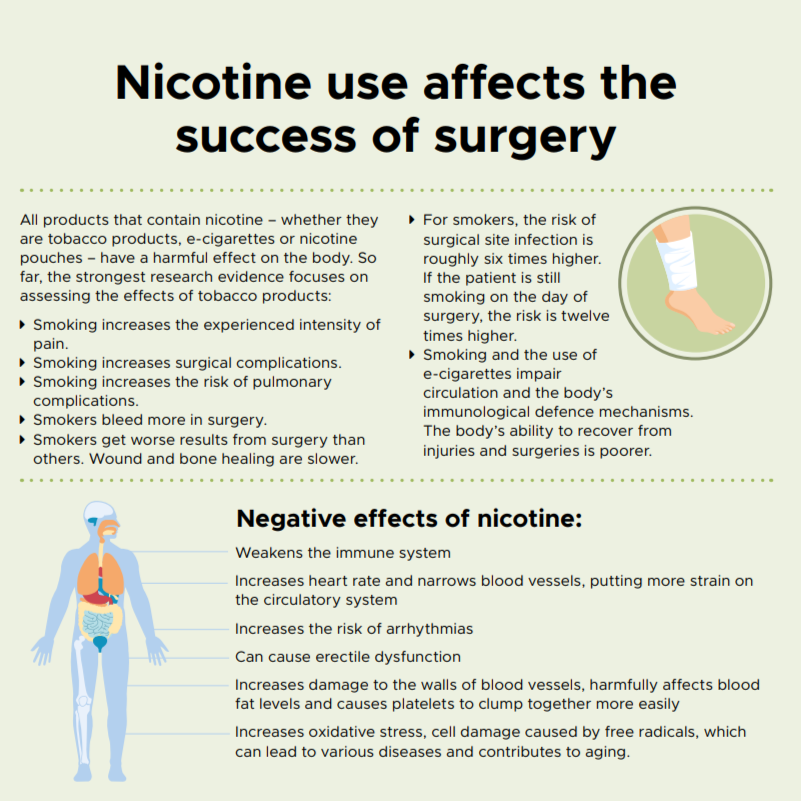Smoking significantly increases postoperative complications. The main risks caused by smoking are heart and lung problems during and after surgery, infected wounds, slower wound healing process and poor bone fracture healing.
Cigarettes contain around 400 different chemicals, of which nicotine, carbon monoxide and hydrogen cyanide are the most harmful in terms of wound healing. Nicotine slows down the wound healing process the most.
Good circulation and avoiding wound infections are key to ensuring that the surgical incision heals ideally. Nicotine causes the blood vessels to narrow, which affects circulation. Nicotine also weakens the ability of platelets to properly adhere to each other, which affects scar formation.
Smoking-related surgery complications occur through several mechanisms: circulatory effects, higher risk of infection and changes in the structure of the skin.
Quitting smoking reduces the risk of surgery complications by at least 30–40%. The best benefits are gained when the use of nicotine products is stopped 1–2 months prior to the planned surgery, but stopping just before surgery is also beneficial.
Related content
- Overcoming nicotine addiction
- The path to quitting: the change begins
- The path to quitting: not smoking becomes an everyday thing
- Snus and common characteristics of snus use
- E-cigarettes and nicotine addiction
Other topics that may interest you

Nicotine use affects the success of surgery
The longer the patient refrains from smoking prior
to surgery, the better the results of the surgery
usually are.